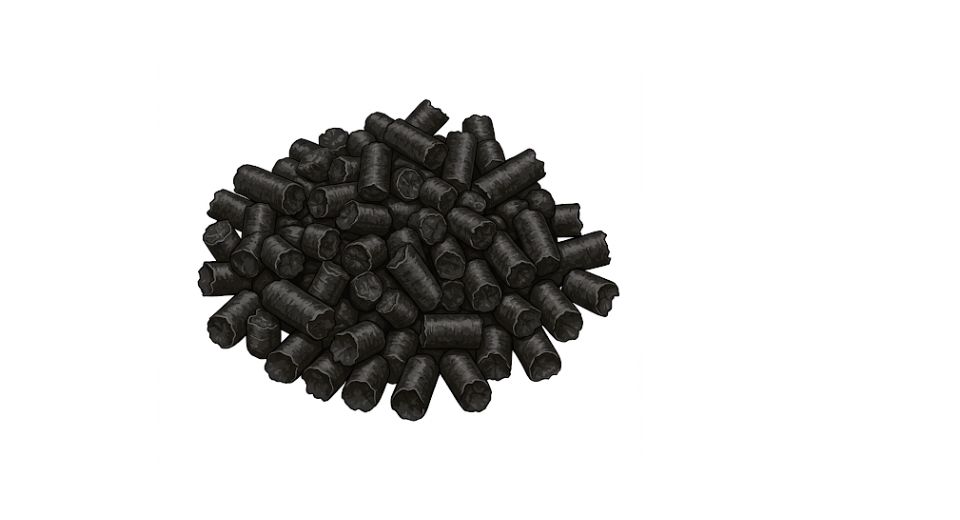
Mar 19, 2025

The global biomass black pellet market has been definably impacted with huge scale growth and factors attributed to this growth highlighted in a recent publication released by Metastat Insight. Black pellets of biomass, generated from organic materials, such as wood chips, agricultural residues, with energy crops through torrefaction, steam explosion, or hydrothermal carbonization, are being proposed as environmentally friendly alternatives to the conventional fossil fuels.
The production of biomass black pellets involves a unique process by which biomass is subjected to maximum heat in an oxygen-absent environment so that the product emerging is of better higher energy density and combustion properties than the conventional white pellets. The end result of this conversion is improved efficiency in the use of fossil fuel and hydrophobity of the fuel restricting its moisture absorption and thus aiding storage and transportation. These unique features lend biomass black pellets to production and co-firing within the infrastructure of existing coal-fired power stations, thus providing a bridge away from fossil fuels and towards renewable energy with minimum infrastructural alterations.
In the context of global energy consumption, although biomass black pellets have penetrated the market mainly in countries and regions where environmental regulations and renewable energy target commitments are stringent, Europe has shown marked growth in the integration of biomass into the energy mix. Germany, the United Kingdom, and the Netherlands are examples of countries that have initiated government policies indirectly or directly encouraging biomass usage for power and heating purposes. This lopsided effort toward renewable energy solutions has cumulatively created a big market for black pellets, influencing investments into production capacities and improvements on the supply chain.
This is reflected across North America, where the black biomass pellets are gaining momentum for the environmental impact as well as commercial opportunities. With respect to mutually advantageous forest resources and agricultural residues, the United States and Canada are favorable candidates for enhancing pellet production. The trend toward sustainability in the industrial level in these North American regions has increased black pellet incineration for power generation and heating. Giving black pellets an edge, their versatility and the option to utilize existing infrastructure would suit industries that wish to reduce their carbon footprint without interruption in efficiency.
The technological advances in the production of pellets are enhancing the market environment. The on-going innovations in the torrefaction and steam explosion processes have improved the quality and consistency of black pellets, enabling them to stand as fair competitors against other conventional energy forms. With stimulation from these advances in technology, the cost of production has gone down, thus making it an economically motivating prospect for producers and end-users alike. Conservation of black pellets through further processing efficacy will be ensured in the execution of national energy demand by other technologies that promote these processes.
Nonetheless, a number of factors hinder the market for biomass black pellets. Feedstock sustainability stands at the forefront; it is essential to ensure that the biomass further used for pellet production does not compete with food resources or trigger deforestation. To avoid such sustainable questions, responsible sourcing standards should be enforced based on certification schemes and environmental criteria to assure ecological integrity in biomass production. There is also a requirement for the setting up of efficient supply chains and logistic networks that can meet the growing demand and a quick rate of distribution for these black pellets worldwide.
The economic situation will hugely affect biomass black pellets market dynamics. Although currently the cost of black pellets is competitive, this area remains volatile with the fossil fuel price responses that will either speed up or slow their adaptation rate. Government policies, subsidies, and even carbon pricing mechanisms will help "level the playing field" for biomass alternatives, while stable and supportive regulatory frameworks will catalyze the necessary certainty to make long-term investments within this sector.
Impressive forecasts on the biomass black pellets market come from the overall trend toward decarbonization and sustainable energy solutions. Countries are making attempts to achieve their climate change goals and to lower the dependency on fossil fuels; the black pellets appear to provide a straightforward route toward this. With black pellets compatible with the existing energy infrastructure, their renewability marks them as an important ingredient in the future energy mix. The way forward lies in sustained R&D and joint action by all stakeholders to enhance the sustainable future energy role of biomass black pellets by tackling hurdles along the way.
This said, the global black pellets market is being driven upwards rapidly by technology, policies that lean towards green energy, and the assertion of duty towards environmental sustainability. Metastat Insight's new report imparts much in terms of the role of black pellets as an energy resource that corresponds with world efforts to mitigate climate change.
Drop us an email at:
Call us on:
+1 214 613 5758
+91 73850 57479